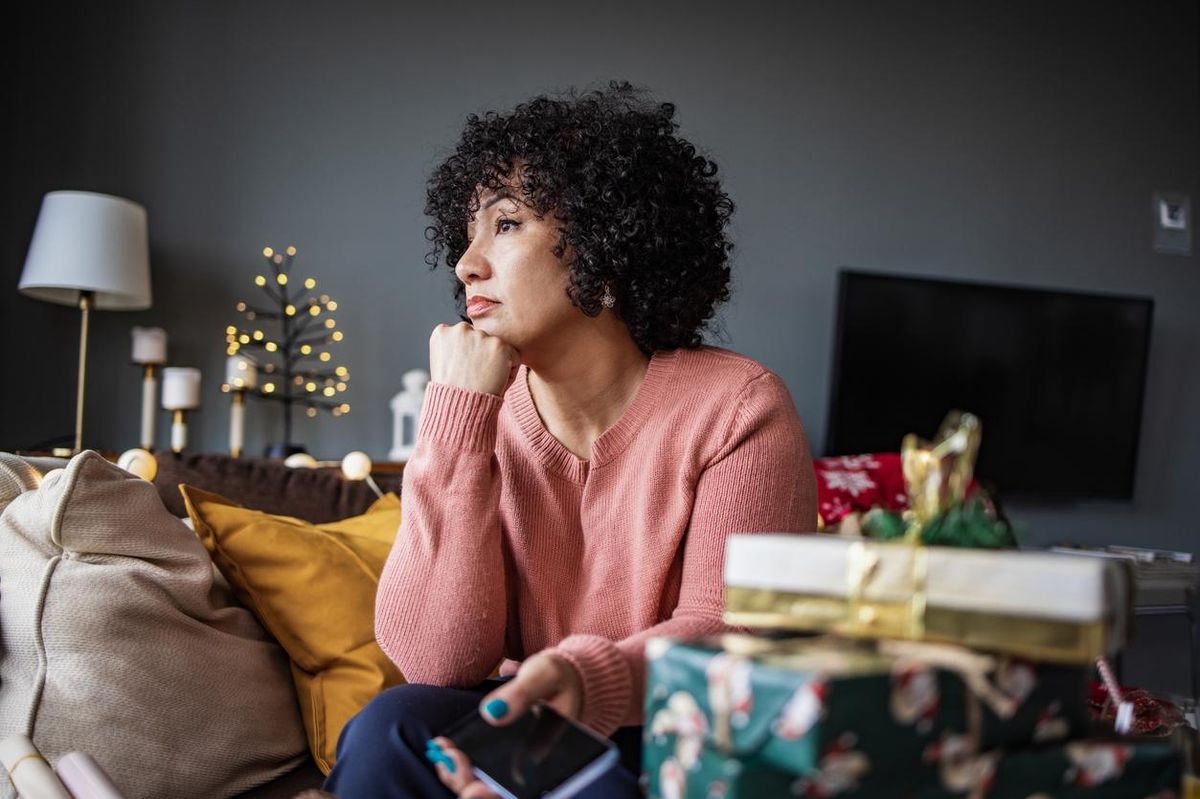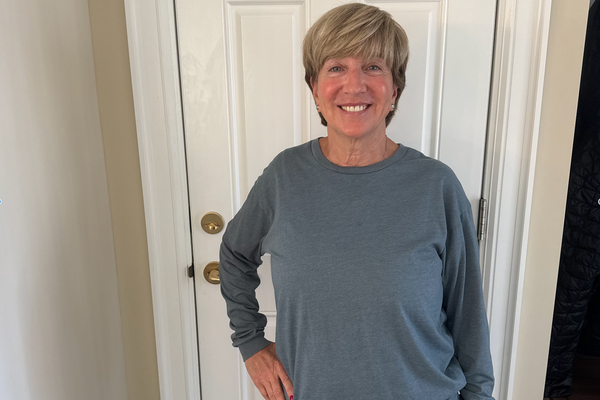They say it’s the most wonderful time of the year, but for many, it’s the most challenging.
Michelle Gillie, for example, is facing the holiday season with a heavy heart. In the past couple of years she’s lost multiple people close to her, among them her 24-year-old nephew, who died last December.
“I am prepared to be immensely sad for the rest of the year,” Gillie said.
What is it about the holidays that cause us to feel the loss of someone we loved so profoundly? Why is our grief — and all the complicated feelings it sparks — so intensely activated?
“It’s a loaded time,” said Claire Bidwell Smith, a therapist and grief expert. “There are decorations up everywhere, family gatherings, gift giving and commercials [advertising the holidays]. It’s supposed to be a cheerful, joyous time — which may be incongruous with how we’re feeling.”
Grief brings a mix of emotions
Around this time of year, Smith often sees clients struggling not only with the more expected feeling of sadness, but also with more complex emotions, such as anxiety and anger.
“There is a lot of anxiety and pressure to make the holidays great even when you are feeling sad and lonely and perhaps dealing with some family conflict,” Smith said. “Or you just don't even want to do the holidays without your [deceased] person. Or you're just constantly bombarded with these happy, cheery images and suggestions for what things are supposed to feel like and you're just feeling like, ‘No, I'm grieving. I don't feel happy and cheery.’”
Resentment can also brew.
“When you perceive that everyone around you is having that festive time and you’re not, you may feel jealousy and resentment,” Smith said.
Those who have lost loved ones may also feel terribly lonely, and like things are all wrong. This may be especially the case if your lost family member or friend was typically very into the holidays or a big part of your festivities.
“They’re not going to be at the holiday gatherings this year — and maybe they brought a lot of dedication to them in the past,” Smith said. “Perhaps they organized the rituals or made the meals. It’s now very apparent that this person isn’t here, and that our lives have changed as a result.”
Memories may also be bubbling up uncontrollably.
“So many memorable experiences have taken place at this time from childhood on up,” said Hope Weiss, a social worker and certified grief-informed professional. “If people who died are part of those memories, this time of year brings them up and [highlights] the loss of that person not being there.”
And we may also be haunted by the ghost of memories we didn’t get the chance to make.
“I struggle with the future we didn’t get, the memories that could have been, the advice not given and the fatherly wisdom I missed out on,” said Juliet Guisasola, who lost her father in 2001 when she was just a teenager.
Guisasola’s grief may not be new, but it’s still raw around the holidays, which isn’t unusual.
“Those who lost people long ago may now be feeling a resurgence of grief this time of year,” Smith said.
We may be grieving someone alive, but not in our lives
We may also be feeling a surge of grief around relationships that we have lost, or over people that we’ve had to cut out of our lives for our own well-being.
“The person doesn’t have to be dead to not be in your life anymore,” Weiss said. “We may have removed someone from our lives. It wasn’t a choice we wanted to make but one we had to make. That can be really hard.”
Get support if you’re grieving during the holidays
How can we navigate these complicated and heavy emotions around the holidays?
The first step for those who are struggling with grief is to connect with people who can relate to what they’re going through.
“Having systems of support, such as a grief support group, can feel so good,” Smith said. “It gives you a community of people who really get it and who won’t judge you for your grief.”
Honor those who are no longer with us
Smith also recommends finding a way to honor your person despite them not being here.
“This could be something you do privately, like hanging an ornament that was special to them, or going to a religious or spiritual service that they used to go to,” Smith said. “Or you may want to write them a card or buy yourself a gift from them. You could also do something larger and more demonstrative by inviting other family members to contribute and gather in honor of the person you lost.”
Be nice to yourself
Now is a time to be exceedingly gentle with yourself and to practice self-compassion.
“It’s easy to go the other way and to judge yourself and think that you should be feeling differently than you do, or that you should be ‘over it’ by now,” Weiss said. “Have compassion for yourself and know that grief doesn’t just go away. It just changes in intensity, and the holidays can bring grief to the forefront. It can happen, and if it does, it’s okay. You’re not doing anything wrong.”
Make a plan
Another helpful thing to do is to think about what will help you get through the holiday season.
“How do you want to spend the holidays this year?” Smith said. “Do you want to close all the blinds, watch Netflix and call it off this year? That's okay. Or do you want to figure out a new plan for your holidays?”
To best cope with her grief, Gillie has decided to stay put for the holidays, and spend them with just her husband and son.
“I normally go home to Chicago to spend the holidays with family,” Gillie said. “But I talked it over with my therapist, and I realized that I am too emotionally triggered right now, so I’ve decided not to go. That’s a big deal. I have to learn to cook for three people instead of 30!”
Though it was a tough decision to make, it was an empowering one.
To get through this time, it’s important that each grieving person figure out what’s going to work for them. There’s no right or wrong way to grieve — but a little understanding can go a long way if you or someone you know is struggling during this time of year.
- Grieving the Death of My Sister ›
- Here’s Why Christmas Movies Are So Appealing This holiday Season ›
- Grieving is Hard, Necessary Work and Coronavirus Makes it Harder - HealthyWomen ›
- Healthy for the Holidays: Webinars - HealthyWomen ›
- Getting Through the Holidays After the Loss of a Loved One - HealthyWomen ›
- The First Holiday Without My Dad Was Hard but Support Helps - HealthyWomen ›
- How to Cope With the World When You're Mourning Covid Losses - HealthyWomen ›







